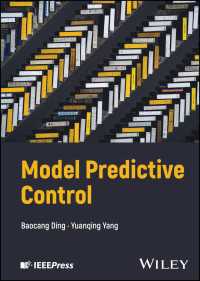Full Description
Written from an equitable data perspective, Questioning Technology: Addressing Divisive Data in Research and Practice translates the pressing challenges within data collection, data categorization and data commercialisation to enable researchers, SMEs, and practitioners to better question why and how they use data.
Offering an alternative that diverges from the current narrative of subjective ethics, this guide affords authentic perspective and confidence to respectively question the function of technology and the intensity of data collection, the ethics of data use, data collection risks and mitigation, data commercialisation, and the impact this has on digital policy. Split into three parts, the first part of the guide introduces the concepts surrounding digital inclusion, data dignity, technical language and the way in which humans are part of the digital ecosystem. The second part discusses and elaborates on the challenges within data collection, data categorization and commercialisation. The third part of the guide focuses on existing and recent policy progression around data and AI and to what degree this knowledge can be applied in the digital and physical realm.
Through a shared and accurate technological language informed by clear and equitable digital terminology and characteristics, O'Higgins and Halliday call for a step-change that can be used in industry and academia to bridge the language and knowledge gap for aligned collaboration through accessibility towards true digital equity.
Contents
Chapter 1. Introduction: Do humans matter in a technologically reliant society?
Chapter 2. What is a techno-society and what is inclusive technology?
Chapter 3. Where is technology in society now?
Chapter 4. Techno-societal challenges and actions for SMEs
Chapter 5. Techno-societal challenges and actions for practitioners
Chapter 6. Techno-societal challenges and actions for academic researchers
Chapter 7. What is an algorithm, AI, and automation?
Chapter 8. Technological trust and dignity
Chapter 9. How SMEs, practitioners and academic researchers can move past technological performativity
Chapter 10. What do humans do now?








